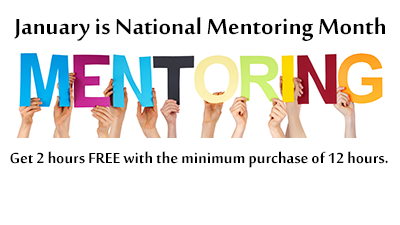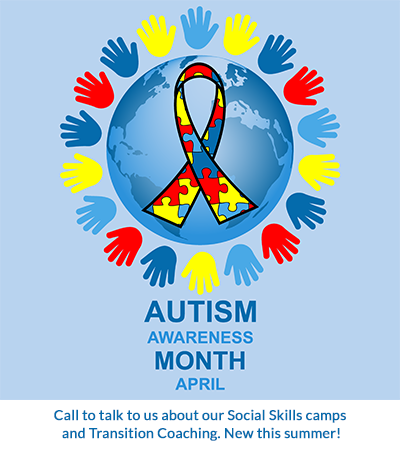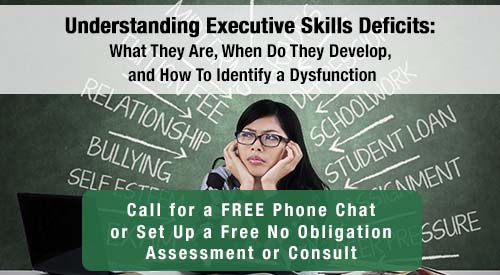Look Past the Symptoms
Deficient executive skills, anxiety and depression may be signs of AD/HD
 “More than meets the eye.” This expression is familiar to parents, educators and physicians who know too well that there is often more to a situation than what they see on the surface. However, when it comes to anxiety and depression among teens, the diagnosis is falling short of the root cause of their symptoms and as a result they still struggle to be successful.
“More than meets the eye.” This expression is familiar to parents, educators and physicians who know too well that there is often more to a situation than what they see on the surface. However, when it comes to anxiety and depression among teens, the diagnosis is falling short of the root cause of their symptoms and as a result they still struggle to be successful.
“More often than not, when a person over the age of 10 is diagnosed with AD/HD, he or she complains of feeling anxious, depressed, or sad. Sometimes the complaint indicates a co-existing anxiety disorder or depression, but often, symptoms of anxiety and unhappiness arise because of untreated AD/HD. He or she doesn’t need medication for anxiety or depression, but needs to be treated for AD/HD,” explained Edward (Ned) Hallowell, M.D., a child and adult psychiatrist and leading authority in the field of AD/HD.
What Does Undiagnosed AD/HD Look Like?
New England Tutors helps many students who are affected by the combined symptoms of undiagnosed AD/HD and anxiety and depression.
Students often come to us struggling with their academics and not realizing their potential for success. We see them unorganized and unable to submit assignments on time. They are incredibly intelligent and hyper aware of their potential to miss the mark and disappoint everyone around them. Their grades suffer from underdeveloped executive skills needed to set themselves up for success in their future careers and life. This lack of executive skills often leads to varying levels of depression and anxiety.
When all of these symptoms manifest, they can be a red flag indicating that the student is struggling with AD/HD. A student’s experiences during the first few months of a new school year provides insight into how these symptoms can unfold. At the beginning, the student is organized and motivated but as he/she starts to miss the mark on assignments, the struggle begins again. The symptoms described above come crashing in as arguments begin with parents. If the core issue remains untreated this viscous cycle will continue with each fresh start.
As we have become more aware of mental health challenges experienced by our students, we typically identify their depression and anxiety and treat those symptoms in isolation. Teachers and counselors are also initiating this help as they become more aware of when a student is struggling with their academic performance and social circles. More students today get help in the form of therapy/counseling and may be receiving educational services, but too often haven’t been evaluated for an underlying issue of AD/HD.
Even with academic support they continue to struggle with motivation, underperformance, scattered or disorganized thinking and an overall low self-esteem. The cycle doesn’t get broken and in many ways they become more discouraged.
“When you live in this anxious state year after year, you train yourself and your neurophysiological system to live in a state of hyper-vigilance. You might say you have an ADD-induced anxiety disorder. But you shouldn’t treat the anxiety, you should treat the ADD,” said Sharon Saline, Psy.D., a licensed clinical psychologist and a top expert on ADHD.
The reality is that many children don’t need to be medicated or treated for depression but rather need the support to treat their AD/HD so they can rebuild their confidence and realize their academic potential. All of this will make them feel better about themselves, motivated to participate in life and give them back the joy they should be experiencing at such a formidable stage of their life.
Understanding these connections can help remove the negative connotations that still come with an AD/HD diagnosis. Consider the significance for the child’s life. Treating the cause allows them to tap into their intelligence and confidently own their potential. When you treat the AD/HD, they can be relieved of the burden associated with anxiety and depression.
Does Your Student Have an Undiagnosed Condition?
To determine if AD/HD is at the heart of your child’s academic challenges, there are three common options for diagnosis:
- Child’s School Psychologist
- Pediatrician
- Psychotherapist
You can pursue a psychological or educational evaluation, which can provide more detailed insight regarding your child’s academic performance, emotional condition and how their brain works to process information.
Only certified school psychologists and licensed psychologists (or neuropsychologists) are trained to do these types of evaluations. You can go through your public school system for an evaluation. Or, you may decide to see someone in private practice. Sometimes health insurance companies will pay for testing but not always.
Next Steps
There are a number of steps you can take to make sure your son or daughter is receiving the services they need.
- If your child has been diagnosed with AD/HD by a primary care or mental health provider you can request an IEP or 504 evaluation. Setting up a meeting with your school is the first step.
- If your son or daughter already has an Individualized Educational Plan (IEP), a 504 accommodation plan or a Functional Behavioral Assessment Plan, you can request an informal gathering of administrators, teachers and counselors to discuss the support services that are already in place or to re-evaluate the existing IEP and make changes.
- As a client of New England Tutors, an advocate and/or your student’s tutor can attend your school meetings to help advocate for your student’s services. Our purpose is to align everyone’s efforts to accomplish the academic and social goals. Your student, depending on their age, should participate in this meeting so they can be heard and contribute to the plan.
- If you are unsure about the level of the services that your child is supposed to receive, New England Tutors can review your plan and make helpful suggestions to achieve the outcomes you desire.
The specialists at New England Tutors are dedicated to their work because they believe in helping students to realize their potential. If you are concerned that your student is struggling in school we can partner with you to determine the right plan and if there is more than meets the eye, we’ll help you navigate that journey too.
For more information about our services, including our Executive Skills Programs, call 844-NETUTOR Ext. 700 or email allison@netutors.com.











